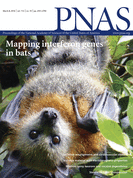
An award-winning researcher and founder of a biotech company based in Ireland has retracted four papers and corrected another.
In the last few weeks, Therese Kinsella — a professor at the University of College of Dublin (UCD) — has issued a correction and three retractions in the Journal of Biological Chemistry (JBC) of papers dating back to 2001, and retracted a 2012 paper in the Journal of Lipid Research.
The retraction notices describe image manipulations, but add that the authors stand by the results. The corrected paper discloses a “possible duplication,” and presents replicated data.
Kinsella is the founder and Chief Scientific Officer of ATXA Therapeutics Limited, a UCD spinoff developing drugs for pulmonary arterial hypertension which recently secured €2.5 million in public funding. Most of her retracted papers investigate the molecular biology of prostacyclin, a synthetic form of which is used to treat pulmonary arterial hypertension.
Continue reading Researcher and biotech founder in Ireland issues four retractions
 A professor specializing in the health of children and pregnant women has left her post at the University of Glasgow, and issued three retractions in recent months.
A professor specializing in the health of children and pregnant women has left her post at the University of Glasgow, and issued three retractions in recent months. This one gave us pause: A journal recently removed a 1992 paper, providing only a terse explanation — “The above article has been removed at the author’s request.”
This one gave us pause: A journal recently removed a 1992 paper, providing only a terse explanation — “The above article has been removed at the author’s request.”  Sometimes, corrections are so extensive, they can only be called one thing: Mega-corrections.
Sometimes, corrections are so extensive, they can only be called one thing: Mega-corrections. When a researcher submitted a manuscript to a journal about multimedia tools, she was frustrated to wait 13 months for the journal to make a decision — only to have it reject the paper outright. So imagine how she felt when, days after the paper was rejected, she saw the journal had published a plagiarized version of the paper by a group of different authors.
When a researcher submitted a manuscript to a journal about multimedia tools, she was frustrated to wait 13 months for the journal to make a decision — only to have it reject the paper outright. So imagine how she felt when, days after the paper was rejected, she saw the journal had published a plagiarized version of the paper by a group of different authors.
 When
When  Researchers Malte Elson and Patrick Markey probably didn’t know what they were getting into when they first raised questions about a problematic study of the possible effects of violent video games.
Researchers Malte Elson and Patrick Markey probably didn’t know what they were getting into when they first raised questions about a problematic study of the possible effects of violent video games. An Italian court has ordered a journal to retract a paper. But it hasn’t just yet.
An Italian court has ordered a journal to retract a paper. But it hasn’t just yet.